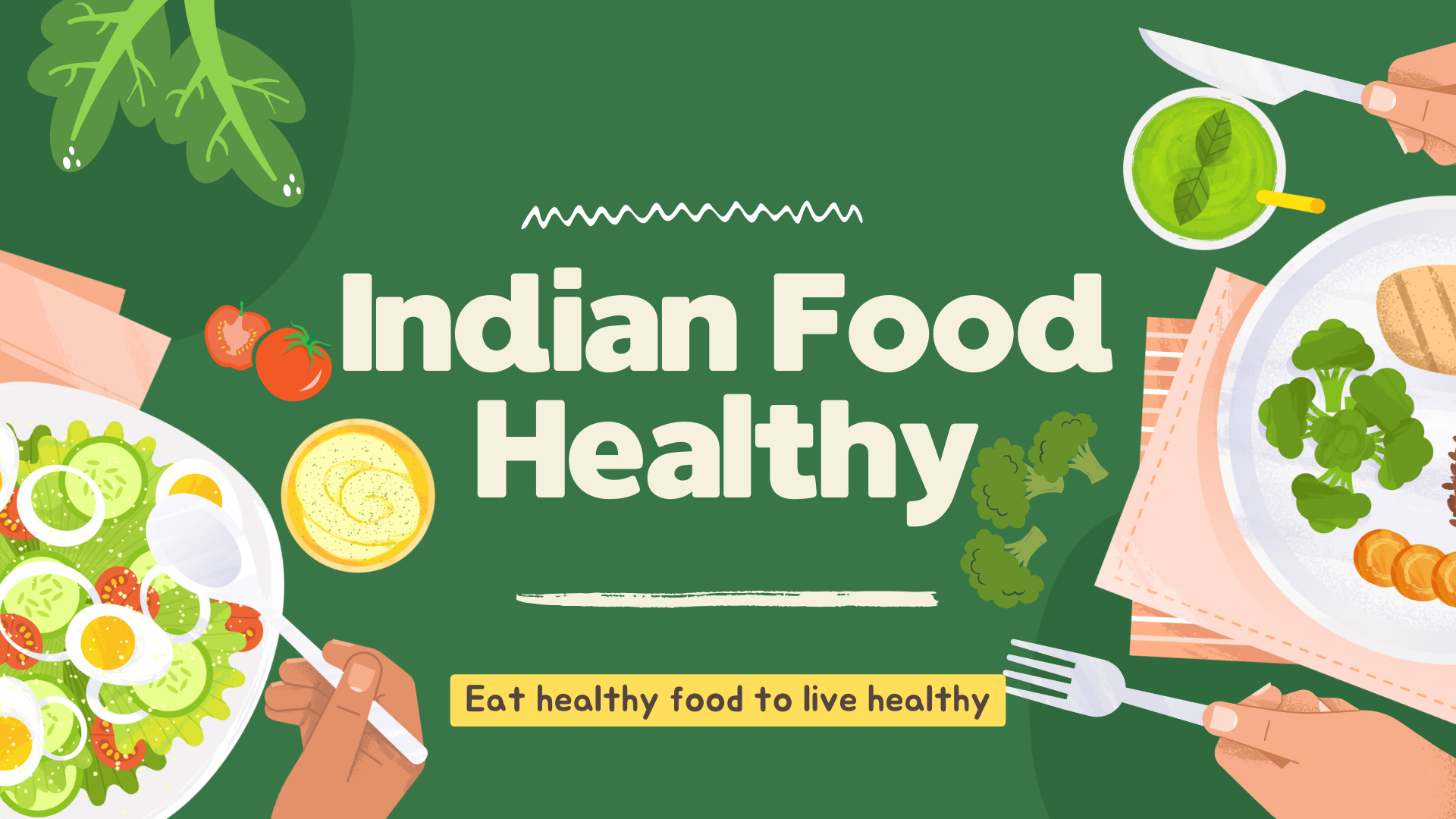Introduction
Indian food is much more than just a cuisine—it’s a reflection of a rich cultural heritage. Known for its bold flavors, aromatic spices, and vibrant colors, Indian cuisine has taken the global food scene by storm. But amidst its popularity, one question remains: Is Indian food healthy?
Let’s dive into the nutritional value, health benefits, and potential pitfalls of Indian food’s to answer this question.
Nutritional Components of Indian Food
Spices and Their Health Benefits
Spices are the heart and soul of Indian cuisine. Turmeric, a golden yellow spice, contains curcumin, which is known for its anti-inflammatory and antioxidant properties. Similarly, cumin aids digestion, while cardamom supports heart health and reduces blood pressure. These spices not only enhance flavor but also pack a punch when it comes to health benefits.
Legumes and Lentils as Protein Sources
Indian meals often include lentils and legumes, such as dals, chickpeas, and kidney beans. These are rich in plant-based protein, fiber, and essential minerals like iron and magnesium. They help maintain energy levels and improve gut Vitamin water, making them a fantastic option for vegetarians and meat-eaters alike.
The Role of Whole Grains
Staples like chapati (made from whole wheat), brown rice, and millet-based dishes provide complex carbohydrates. These grains are rich in fiber and promote sustained energy release, keeping you full and satisfied for longer.
Indian Food’s and Balanced Eating
Variety in Indian Meals
Traditional Indian thalis are a perfect example of balanced eating. A typical thali includes vegetables, lentils, grains, and sometimes a protein like paneer or chicken, ensuring you get a mix of essential nutrients in every meal.
Portion Control and Indian Food
While Indian Food Healthy offers variety, portion control is crucial. Rich dishes like butter chicken and biryanis can be calorie-dense, but moderating portions can help you enjoy them without guilt.
Plant-Based Indian Diet
Indian cuisine is a paradise for vegetarians. Dishes like aloo gobi, palak paneer, and vegetable biryani provide a nutrient-rich, plant-based diet that supports overall health and wellness.
Health Benefits of Indian Food
Boosting Immunity with Spices
Indian spices like turmeric, cinnamon, and cloves are rich in antioxidants that strengthen your immune system. During flu season, sipping on turmeric milk or masala chai can be a game-changer.
Digestive Benefits
Indian cuisine often incorporates digestive aids like ginger, fennel seeds, and yogurt. Ginger helps soothe the stomach, while fennel seeds prevent bloating. Yogurt, a staple in raita, provides probiotics that improve gut health.
Heart Health
Ingredients like garlic, onions, and fiber-rich whole grains promote cardiovascular health. Spices like cinnamon and cardamom also help regulate blood pressure and cholesterol levels.
Concerns and Myths About Indian Food
Is Indian Food High in Calories?
A common misconception is that all Indian Food Healthy is calorie-heavy. While certain dishes like fried samosas and creamy curries can be high in calories, others, like grilled tandoori chicken and vegetable soups, are nutritious and low in calories.
The Role of Oils and Fats
Ghee (clarified butter) is often used in Indian cooking, and while it’s calorie-dense, it also contains healthy fats when consumed in moderation. Opting for minimal oil and healthier cooking methods can make a significant difference.
Spiciness and Digestive Issues
Some people believe that spicy Indian Food Healthy causes digestive issues. However, spices like ginger and cumin actually aid digestion. The key is moderation and understanding your spice tolerance.
Making Indian Food Healthier
Healthier Cooking Techniques
Opt for steaming, grilling, or sautéing over deep-frying. For instance, steaming idlis or grilling kebabs retains nutrients and reduces unnecessary fats.
Smart Ingredient Swaps
Substitute heavy cream with coconut milk or yogurt in curries. Replace refined grains with whole-grain options like millet or quinoa.
Portion Control Tips
Stick to smaller servings of rich dishes and fill your plate with nutrient-dense options like salads, dals, and lightly sautéed vegetables.
Indian Food in Weight Management
Can You Lose Weight with Indian Food?
Yes! Indian Food Healthy can be weight-loss friendly when you focus on portion control, lean proteins, and whole grains. For instance, a simple meal of dal, brown rice, and sautéed vegetables is both satisfying and low in calories.
High-Protein Indian Dishes
Dishes like paneer tikka, moong dal cheela, and boiled eggs with masala are excellent high-protein options that keep you full for longer, aiding weight management.
Low-Calorie Indian Recipes
Think vegetable soups, spiced buttermilk, or stir-fried greens. These options are not only low in calories but also high in nutrients.
Indian Food for Specific Diets
Keto and Indian Food
Many Indian dishes can be adapted for a keto diet. For instance, swap rice with cauliflower rice or make almond flour rotis to enjoy low-carb versions of your favorite meals.
Gluten-Free Indian Options
Gluten-free eaters can enjoy dishes made with millet, rice, or besan (gram flour). Options like dosa, idli, and bajra roti fit perfectly into a gluten-free diet.
Indian Food for Diabetics
Low-glycemic dishes like whole-grain chapati, green vegetables, and dals are ideal for managing blood sugar levels.
Conclusion
Indian food, when prepared mindfully, is incredibly healthy. From its nutrient-dense ingredients to its rich variety of flavors, it caters to diverse dietary needs. Whether you’re managing weight, boosting immunity, or simply enjoying a wholesome meal, Indian cuisine has something for everyone.
So, is Indian food healthy? Absolutely—if you choose the right dishes and enjoy them in moderation.
FAQs
Is Indian food healthy for everyday consumption?
Yes, with balanced portions and mindful ingredient choices, Indian food can be a healthy part of your daily diet.
Can I eat Indian food if I’m on a weight-loss diet?
Definitely! Focus on grilled, steamed, or sautéed dishes and include whole grains and vegetables.
What are the healthiest Indian dishes to try?
Dishes like dal, tandoori chicken, vegetable sabzi, and millet rotis are great options.
Does Indian food have too much oil?
Not always. By choosing healthier cooking methods, you can reduce oil usage significantly.
Are Indian spices really beneficial for health?
Yes, they are packed with antioxidants, anti-inflammatory properties, and other health benefits.
